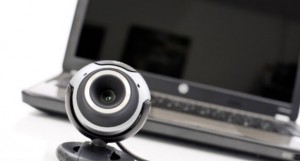MANILA, Philippines — Days after Facebook took down over 100 fake accounts that were traced to police and military units in the Philippines for engaging in “coordinated inauthentic behavior,” the Commission on Human Rights (CHR) has vowed to go after those behind the accounts if it is proven that the “malicious” online activity was indeed state-sponsored.
CHR Commissioner Karen Gomez Dumpit called the alleged links of the removed Facebook accounts to the Armed Forces of the Philippines and the Philippine National Police as “alarming,” adding that should this activity be proven true, it goes against the public’s best interest.
“In these times when cyber militias and troll farms are reported to drown out legitimate dissent and haphazardly label individuals and organizations as “enemies of the people,” such allegations cast doubts on the agenda of these institutions,” Dumpit said in a statement.
Facebook’s investigation shows the need for the country’s policymakers to create laws against those who “systematically purvey disinformation” while balancing them with the people’s right to freedom of expression.
“If proven that such malicious activity is state-sponsored propaganda, the CHR commits to hold those perpetrators to account as they are violations of civil and political rights,” she added.
In an online press conference, Nathaniel Gleicher, Facebook’s cybersecurity policy chief, said that most of the content in the fake accounts — which were managed by people affiliated with various police and military agencies — revolved around criticism of the opposition, activism, and communism.
Gleicher said that the domestic network consisted of around 57 Facebook accounts, 31 pages, and 20 Instagram accounts.
The CHR welcomed Facebook’s move to take down these networks of fake accounts, saying that disinformation is a human rights issue that causes harm to society and a weapon against democracy and freedom of expression.
“Under human rights law, everyone has the right to receive and impart information. This presupposes correct and accurate information,” Dumpit said.
“Freedom of expression is also not an unlimited right and could be restricted to respect the rights or reputations of others and for the protection of national security, public order, public health, or morals,” she added.
While the CHR welcomed the development, Dumpit said Facebook’s policies should be anchored on human rights—in this case, the right to receive and impart information and the right to freedom of expression.
“We remind Facebook that corporations and businesses have a moral responsibility to respect, protect, and remedy the violations of rights under the UN Guiding Principles on Business and Human Rights,” Dumpit said.
“Social media’s bottom line should not be merely profits and money. It should also be the true and genuine connection of people to each other,” she added.


